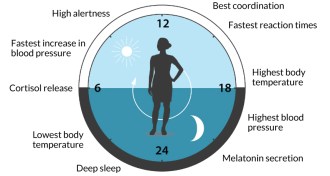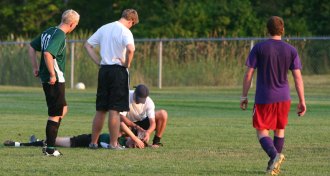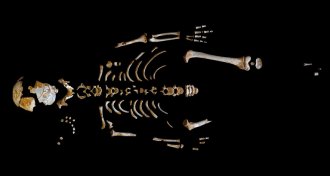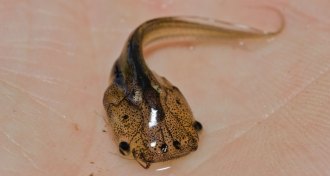Humans
Sign up for our newsletter
We summarize the week's scientific breakthroughs every Thursday.
-
 Science & Society
Science & SocietySuccess in science depends on luck, plus much more
Acting Editor in Chief Elizabeth Quill says luck is only one determinant of an individual's success in science.
-
 Anthropology
AnthropologyThe rise of agricultural states came at a big cost, a new book argues
In ‘Against the Grain,’ a political scientist claims early states took a toll on formerly mobile groups’ health and happiness.
By Bruce Bower -
 Health & Medicine
Health & MedicineSix in seven contact lens wearers take unnecessary risks with their eyes
A lot of contact wearers are not practicing healthy habits with their lenses, a national survey finds.
-
 Life
LifeBody clock mechanics wins U.S. trio the Nobel Prize in physiology or medicine
The cellular mechanisms governing circadian rhythms was a Nobel Prize‒winning discover for three Americans.
-
 Health & Medicine
Health & MedicineSeeing an adult struggle before succeeding inspires toddlers to persevere too
When 15-month-olds watched an adult struggle and then succeed, the toddlers were more likely to try harder themselves, a study found.
-
 Genetics
GeneticsAncient boy’s DNA pushes back date of earliest humans
Genes from South African fossils suggest humans emerged close to 300,000 years ago.
By Bruce Bower -
 Genetics
GeneticsA mutation may explain the sudden rise in birth defects from Zika
A mutation in a protein that helps Zika exit cells may play a big role in microcephaly.
-
 Health & Medicine
Health & MedicineAbout 1 in 5 teens has had a concussion
Almost 20 percent of U.S. teens have had at least one diagnosed concussion in the past, an analysis of a 2016 national survey finds.
-
 Health & Medicine
Health & MedicineAbout 1 in 5 teens has had a concussion
Almost 20 percent of U.S. teens have had at least one diagnosed concussion in the past, an analysis of a 2016 national survey finds.
-
 Anthropology
AnthropologyNeandertal kids were a lot like kids today — at least in how they grew
Ancient youngster’s spine and brain grew at relatively slow pace.
By Bruce Bower -
 Health & Medicine
Health & MedicineFrom day one, a frog’s developing brain is calling the shots
Frog brains help organize muscle and nerve patterns early in development.
-
 Health & Medicine
Health & MedicineTelling children they’re smart could tempt them to cheat
Kids who were praised for being smart were more likely to cheat, two studies suggest.